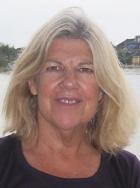Teaching and Learning in the Interactive Classroom – A Series of Workshops
Instructor: Ms Adele Graham
Date: Every Thursday in Mar. See below for further details.
Venue: Room 3037 (Lift 1, next to the Hang Seng Bank)
Who can attend?
Research students and staff who want to make their teaching more active and engaging! Specifically,
- Postgraduate students who have completed the Teaching Assistant Induction Program
- Non-faculty teaching staff with teaching responsibilities.
What's the commitment?
- There are seven three-hour workshops in this series. Enrol in as many as interest you.
- Attend five of the seven workshops and you will receive a certificate
(A Certificate of Attendance is good evidence to substantiate claims in your CV or Teaching Portfolio.) - Preference will be given to those who enroll in five or more workshops.
- TAs can receive credit hours for elective workshops in the TA program.
What is the schedule?
- Workshops start on 1 March and run for 5 weeks
| 1 March (Thurs) | 2-5pm | First and last classes: Engaging starts and enduring endings | Just some of the activities we’ll test
and more! |
| 8 March (Thurs) | 2-5pm | Activities that get students to think and talk | |
| 15 March (Thurs) | 2-5pm | Activities that get students to ask and answer questions | |
| 22 March (Thurs) | 2-5pm | Activities that get students to work independently and together | |
| 24 March (Sat) | 10-1am | Grabbing and keeping attention in the interactive classroom | |
| 24 March (Sat) | 2-5pm | Design for learning in the interactive classroom | |
| 29 March or 2 April or 3 April |
2-5pm | Teaching practice An opportunity to test your skills, get feedback and coaching in a small group |
What are the program outcomes?
At the heart of every workshop is the notion of the interactive classroom – teaching that goes beyond the traditional lecture. Attend all seven workshops and you will be well on the way to developing skills that will enable you to:
- Get new classes off to a good start
- Build trustful relationships
- Engage students and develop their skills by using strategies and activities that, amongst other things, get them to think, question, discuss, explore, write, solve problems, negotiate, work independently and work collaboratively
- Maximize the use of classroom time by deciding what to include and how best to structure lessons
- Grab and keep students’ attention
- Provide academic as well as emotional closure to the end of a course of teaching
Know what! Know how! Knowledge and skills that will result in better learning experiences and outcomes for the students you work with!
What's the teaching approach?
The workshops are experiential (not a sitting and listening program!) The activities that you will participate in are ones that you will be able to adapt in your own (future) teaching.
There will be many opportunities to think, test, make mistakes, reflect, get feedback, rework, retest, and improve!
A message from the facilitator, Adele Graham
 Hi!
Hi!
I hope you find the time to come to these workshops. I’ll be working hard to make sure you get the most out of the time you spend with me, and enjoy your learning experience.
My teaching practice is based on firsthand experiences as an educational developer (developing tertiary teachers’ teaching skills) working in universities, a vocational education institution and colleges of education.
From 1998 to 2007, I worked in Hong Kong where I was first employed to establish and Head the Teaching and Learning Centre for the Vocational Training Council. Later I moved to the Hong Kong Polytechnic University as a Senior Educational Development Adviser. Prior to Hong Kong, I was employed as a Senior Lecturer with the Centre for Professional Development at The University of Auckland.
I now work as an educational consultant, primarily in Hong Kong and New Zealand, but my work has also taken me to Saudi Arabia, China, and Sri Lanka.
I am most happy with my work when I see teachers critically examining what they are doing, and developing the courage to try out new ways of teaching.
- 3844 reads
